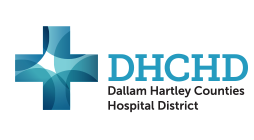Cardiopulmonary Rehabilitation
Cardiopulmonary rehabilitation is a medical program that helps with various cardiac and pulmonary conditions to achieve optimal physical function. It consists of two separate programs, cardiac rehabilitation and pulmonary rehabilitation.
Cardiac Rehabilitation is a medically supervised program to help heart patients recover quicker while improving their overall physical, mental and social functioning. The goal is to stabilize, slow, or even reverse the progression of cardiovascular disease, thereby reducing the risk of heart disease and another cardiac event or death. Cardiac rehabilitation programs include physical exercise with nutritional and psychological counseling, as well as social and emotional support. When combining all aspects of cardiac rehabilitation, it can improve physical endurance and quality of life, reduce risk factors, and create a sense of well-being and optimism about the future.
Pulmonary Rehabilitation is a medically supervised program to people with chronic lung disease such as COPD, emphysema, and chronic bronchitis. This program helps patients to live full, satisfying lives and restores them to their highest physical endurance. Pulmonary rehabilitation is aimed to reduce symptoms, reduce disability, and improve overall quality of life. It is designed to provide social and emotional support, as well as, educate patients about their illness, nutrition, smoking cessation, the benefits of exercise, and psychological counseling. Pulmonary rehabilitation does not change or improve lung function but it will improve exercise tolerance, quality of life, and breathlessness by increasing muscle strength and improving aerobic fitness.
For more information about these programs or to find out how you can take advantage of the benefits they offer, please contact the program director:
Letha Byrd, RRT, RCP
(806)244-4571 ext. 1983
